International Day of Clean Air for Blue Skies: DAS Solar Advances Clean Energy through PV Innovation
2025-09-05
September 7 marks the International Day of Clean Air for Blue Skies, a global reminder of the urgent need to reduce air pollution and protect public health. As countries around the world continue to advance air quality initiatives, solar energy is playing a pivotal role in accelerating this transition. DAS Solar is driving forward practical solutions that support cleaner air, leveraging its high-efficiency N-type modules, lightweight product line, and diverse application models across urban, ecological, and floating PV systems.
Unlocking the Potential of High-Efficiency N-Type Technology
In the ongoing global shift toward clean energy, improving energy conversion efficiency and reducing reliance on fossil fuels are critical steps in addressing air pollution at its source. DAS Solar has made significant strides in N-type PV technology, continuously pushing the boundaries of efficiency. The company's mass-produced TOPCon 5.0 cells have achieved conversion efficiencies above 27%, while its independently developed DBC 3.0 Plus cells have reached 27.77% efficiency with a module output exceeding 670W and an open-circuit voltage of 745.7mV. Additionally, the TSiP 2.0 perovskite/TOPCon tandem module has recorded efficiencies of 26.8%, reflecting DAS Solar's industry-leading technological breakthroughs.
With these high-efficiency modules, DAS Solar can generate more clean electricity using the same installed capacity, significantly reducing dependence on coal and oil. By the end of 2024, the company's modules shipped worldwide are expected to save approximately 21.04 million tons of standard coal annually and reduce CO₂ emissions by around 57.96 million tons, making a measurable contribution to improving urban air quality around the world. This commitment to clean air is embedded across operations. DAS Solar was recently awarded the EcoVadis Platinum rating, placing it in the top 1% globally for sustainability performance, recognizing both its technological leadership and full-chain commitment to environmental responsibility.
Lightweight Modules: Bringing Solar to the Heart of the City
As urbanization continues to accelerate, cities are under increasing pressure to expand access to clean energy. However, limited rooftop load capacity has long hindered large-scale PV adoption in urban settings. DAS Solar addressed this challenge by launching a new generation of lightweight modules—approximately 70% lighter than conventional products, weighing only 4.2kg/m²—making them ideal for weight-constrained structures such as industrial rooftops, parking canopies, and even slope-mounted systems.
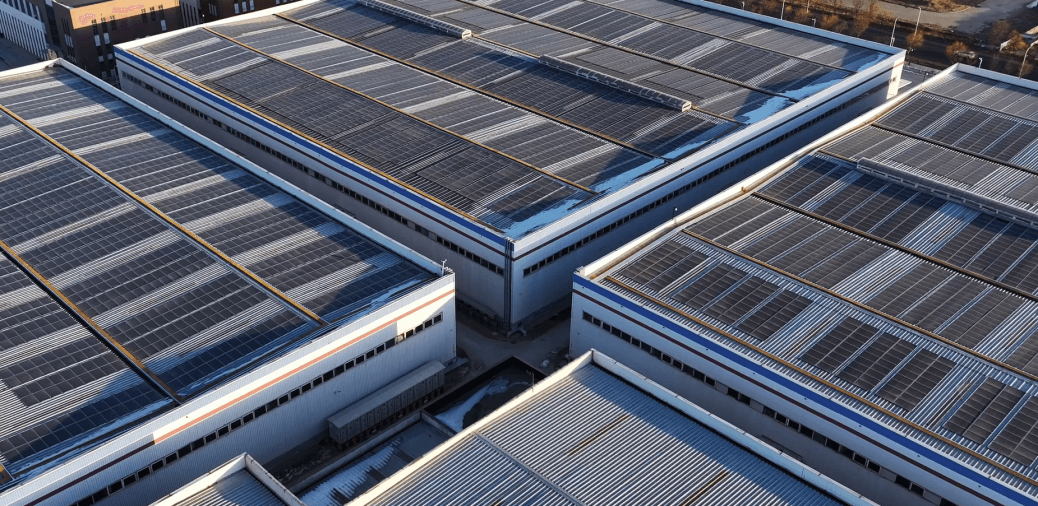
In a project in Tianjin, DAS Solar's lightweight modules were deployed on color steel rooftops without the need for reinforcement, overcoming previous installation barriers. The system is projected to generate approximately 4.35 million kWh annually, cutting carbon emissions by an estimated 4,250 tons each year, turning unused rooftop space into productive clean energy assets.
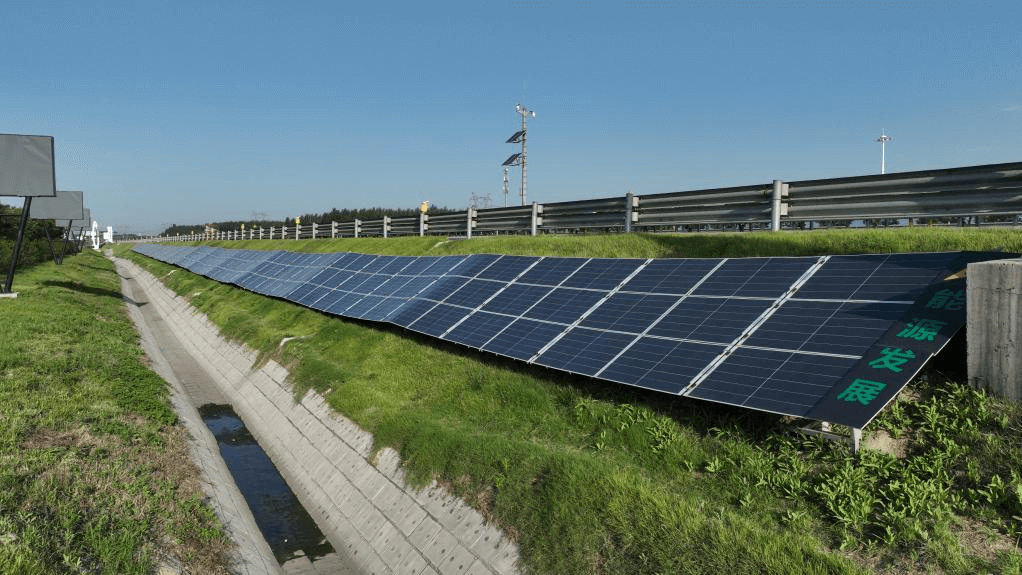
At the Jinan East service area on the Shandong expressway, DAS Solar's lightweight modules supported the development of China's first zero-carbon service station. The installation was adapted to complex layouts including rooftops, slopes, and parking zones, improving actual power generation hours by 10% beyond initial projections. The system now supplies 100% of the site's electricity needs—including nighttime usage—drastically cutting emissions associated with traditional diesel-powered generation.
Floating PV: Clean Power Meets Ecological Restoration
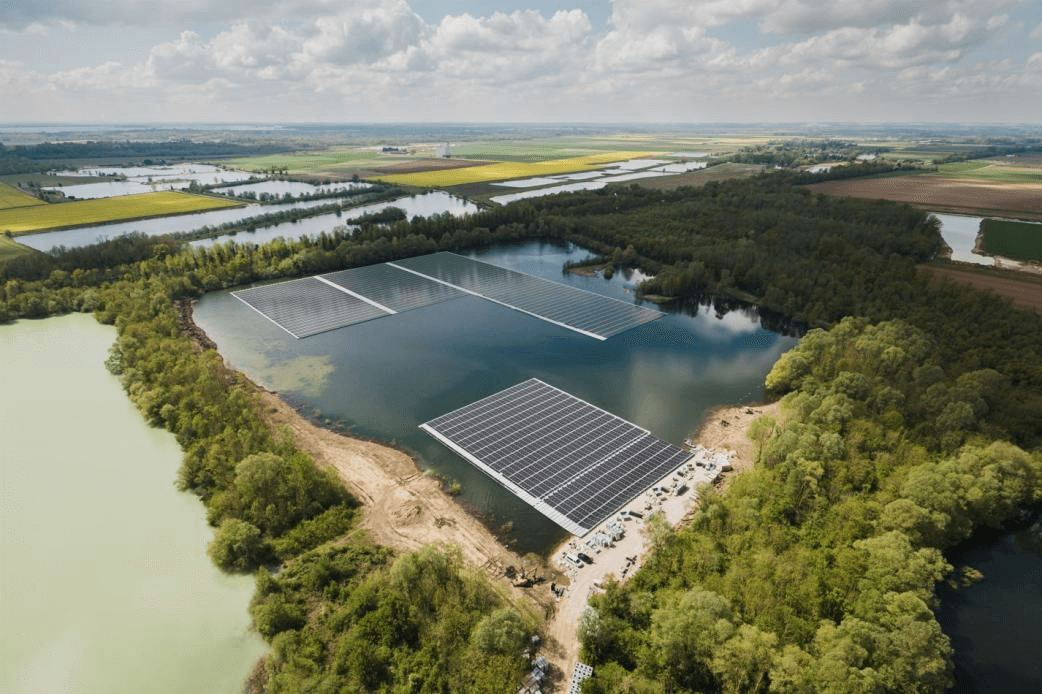
FPV is emerging as a strategic approach to clean power generation that also offers environmental co-benefits. In central France, DAS Solar partnered with Q Energy France to deliver Europe's largest floating solar plant: a 74.3MW installation spanning 127 hectares of lake surface at Les Ilots Blandin. Designed to perform under high humidity and salt-mist exposure, DAS Solar's dual-glass, high-efficiency modules deliver robust moisture and corrosion resistance while benefiting from increased solar reflectivity over water to boost energy yield. The project generates enough electricity annually to power 37,000 households and reduce CO₂ emissions by approximately 18,000 tons.
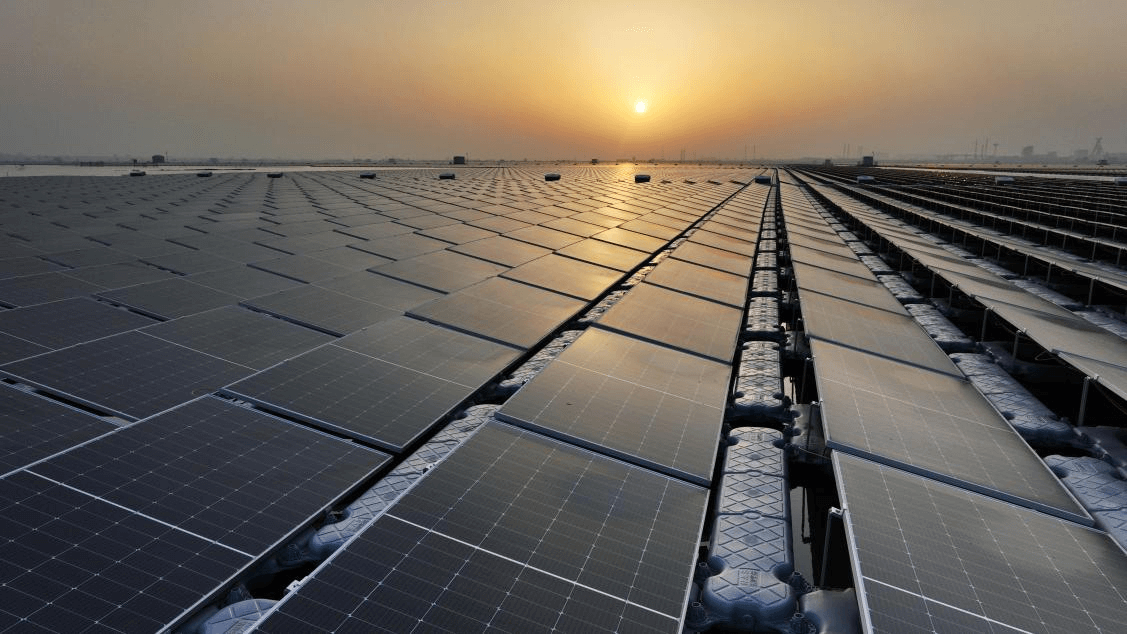
Floating PV systems also help reduce water evaporation and inhibit algae growth, supporting aquatic biodiversity. These environmental benefits are exemplified in China's largest single-site floating solar project, located in a former coal mining subsidence area. Operated under a fishery complementary PV model, the system supplies clean electricity while supporting local aquaculture, blending energy development with ecological restoration.
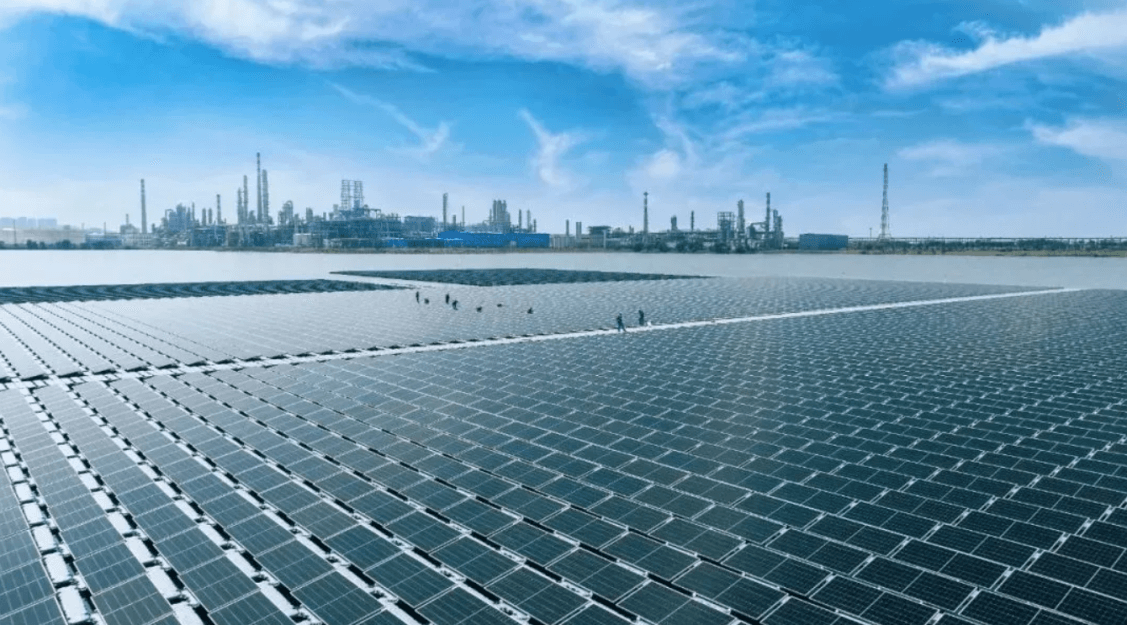
In Qingdao, DAS Solar provided modules for Sinopec's offshore floating PV initiative, the first of its kind operating in a full seawater environment. Here, the unique layout and natural water-cooling effect help reduce module operating temperatures by 3-5°C, improving energy output by 5-8%. The system is expected to produce approximately 16.7 million kWh of green electricity annually, cutting carbon emissions by 14,000 tons and offering a replicable solution for solar deployment in coastal and near-shore environments.
As the global community commemorates the International Day of Clean Air for Blue Skies, DAS Solar continues to advance scalable PV solutions that support both energy transition and air quality goals. From industrial rooftops to floating systems, DAS Solar's high-efficiency modules are helping reduce pollution, displace fossil fuels, and accelerate decarbonization across sectors and geographies.







 浙公网安备33080302000236
浙公网安备33080302000236